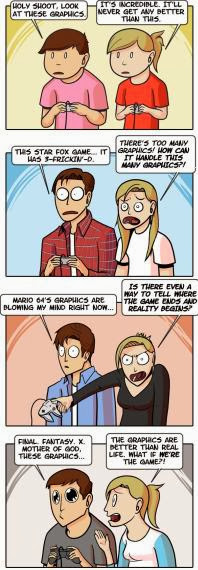Video Games, Quantum Mechanics and Philosophy

Video games are often reviled for their violence. And their addictiveness. And how they are a bad influence on kids. So what would you say if a video game, Minecraft , allows the player to experiment with quantum mechanics?! I kid you not. Minecraft is a game that supports something called “ mods ”: Short for modifications, mods “add content to the game to alter gameplay, change the creative feel, or give the player more options in how they interact with the Minecraft world”. Google’s Quantum AI Lab Team created a mod called qCraft that adds blocks that exhibit quantum entanglement, superposition, and observer-dependency properties! Thus, some of the new blocks can be “activated” simply by looking at them, while others are prone to disappear at any moment. But why add this in a video game of all places? Google’s answer : “Where will future quantum computer scientists come from? Our best guess: Minecraft.” And oh, also to make learning fun: “qCraft isn't a perfe
